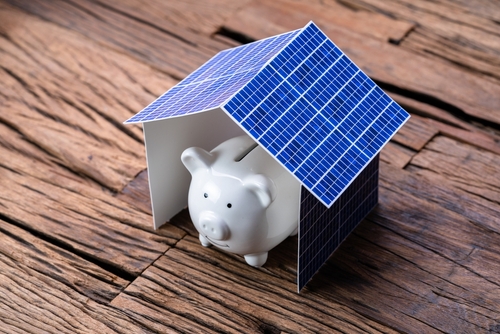
Tips On Saving Electricity With Solar Panels
March 27, 2023
Solar Panels for Condo Penthouses in Singapore: What You Need to Know
April 21, 2023Is Installing Solar Panels Eco-Friendly? Comprehensive Analysis Singapore

Solar Panels Eco-Friendly
Introduction:
As global concern for the environment continues to grow, individuals and organizations alike are seeking eco-friendly solutions to reduce their carbon footprints. One popular method is the installation of solar panels, which harness the sun’s energy to produce clean, renewable electricity. In this article, we will examine the eco-friendliness of solar panels, particularly in the context of Singapore, and discuss the benefits and potential drawbacks of adopting solar energy in the city-state.
The Science of Solar Energy
Solar panels work by capturing sunlight and converting it into electricity through a process called the photovoltaic effect. This occurs when photons from the sun’s rays interact with solar cells, releasing electrons and generating an electric current. Unlike traditional energy sources, such as coal or natural gas, solar energy is renewable and produces no harmful emissions or air pollution.
Environmental Benefits of Solar Panels
There are several key environmental benefits associated with installing solar panels:
Reduced greenhouse gas emissions: By generating electricity without burning fossil fuels, solar panels help reduce the emission of harmful greenhouse gases, such as carbon dioxide, which contribute to climate change.
Improved air quality: Solar power production does not release harmful pollutants, such as sulfur dioxide and nitrogen oxides, which can cause respiratory issues and contribute to smog.
Conservation of natural resources: Using solar energy reduces the need for finite resources like coal, oil, and natural gas, preserving them for future generations and minimizing the environmental damage associated with their extraction and processing.

Solar Energy in Singapore: Opportunities and Challenges
Singapore has a unique set of opportunities and challenges when it comes to adopting solar energy:
Abundant sunlight: As a tropical country, Singapore receives ample sunlight throughout the year, making it an ideal location for solar energy generation.
Limited land area: With limited land available for large-scale solar farms, Singapore must rely on creative solutions like rooftop solar panels and floating solar installations to maximize solar energy production.
High energy demand: Singapore’s dense population and thriving economy result in a high demand for electricity, making the adoption of renewable energy sources like solar power crucial for long-term sustainability.
Government Initiatives and Support for Solar Energy
The Singaporean government has recognized the importance of solar energy and has implemented various initiatives to promote its adoption:
SolarNova Programme: A multi-agency effort led by the Economic Development Board and the Housing & Development Board, aimed at aggregating demand for solar power across government agencies and facilitating solar adoption in public housing estates.
Grants and subsidies: Financial incentives, such as grants and tax breaks, are available for individuals and businesses looking to install solar panels in Singapore.
Research and development: The government supports research and development in solar energy technologies through institutions like the Solar Energy Research Institute of Singapore (SERIS).

The Lifecycle of Solar Panels: Assessing Their Eco-Friendliness
To determine the overall eco-friendliness of solar panels, it is important to consider their entire lifecycle, from manufacturing to disposal:
Manufacturing: The production of solar panels involves the use of raw materials, such as silicon and metals, which must be mined and processed. This can have environmental impacts, including habitat destruction and pollution from mining operations. However, advances in manufacturing technology and recycling initiatives are helping to mitigate these concerns.
Installation and maintenance: Installing solar panels has minimal environmental impact, and ongoing maintenance is relatively low. Panels typically have a lifespan of 25-30 years, and their efficiency decreases only slightly over time.
Disposal and recycling: At the end of their lifespan, solar panels can be recycled to recover valuable materials and reduce waste. Singapore is currently working to develop recycling facilities and strategies to manage the disposal of solar panels in an environmentally responsible manner.
Conclusion:
In conclusion, the installation of solar panels in Singapore is an eco-friendly solution to meeting the city-state’s energy needs. While there are environmental considerations associated with the manufacturing and disposal of solar panels, the benefits of harnessing clean, renewable energy far outweigh the drawbacks. With abundant sunlight, supportive government policies, and innovative approaches to maximizing solar power generation, Singapore is well-positioned to embrace solar energy as a key component of its sustainable future.
By investing in solar panel installations, Singaporeans can reduce their reliance on fossil fuels, decrease greenhouse gas emissions, and contribute to cleaner air quality. Moreover, the government’s commitment to promoting solar energy through research, development, and financial incentives demonstrates the potential for solar power to play a significant role in Singapore’s energy landscape.
As technology advances and recycling initiatives improve, the environmental impact of solar panel production and disposal is expected to decrease. In the meantime, the long-term environmental benefits of adopting solar energy make it a compelling and eco-friendly option for Singaporeans seeking to reduce their carbon footprint.
Ultimately, solar panels represent a viable and eco-friendly energy solution for Singapore, offering a renewable and clean source of electricity that aligns with the nation’s sustainability goals. As awareness of the benefits of solar power grows and the technology continues to advance, it is likely that solar energy will become an increasingly prominent and vital component of Singapore’s energy mix. If you are looking for a reliable solar panel supplier in Singapore, you can contact us today!




